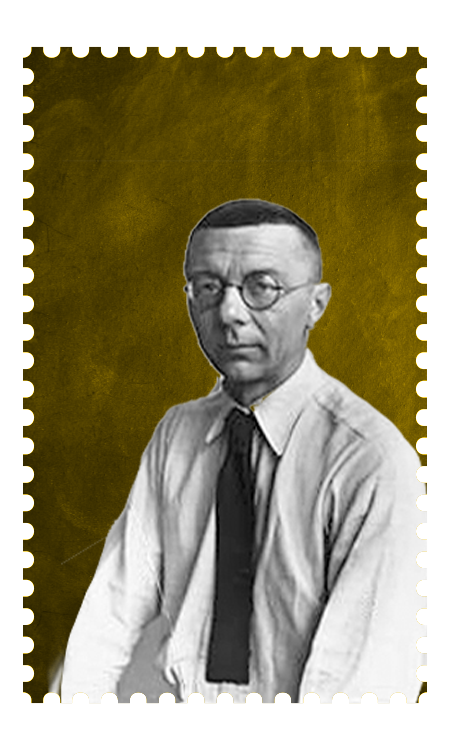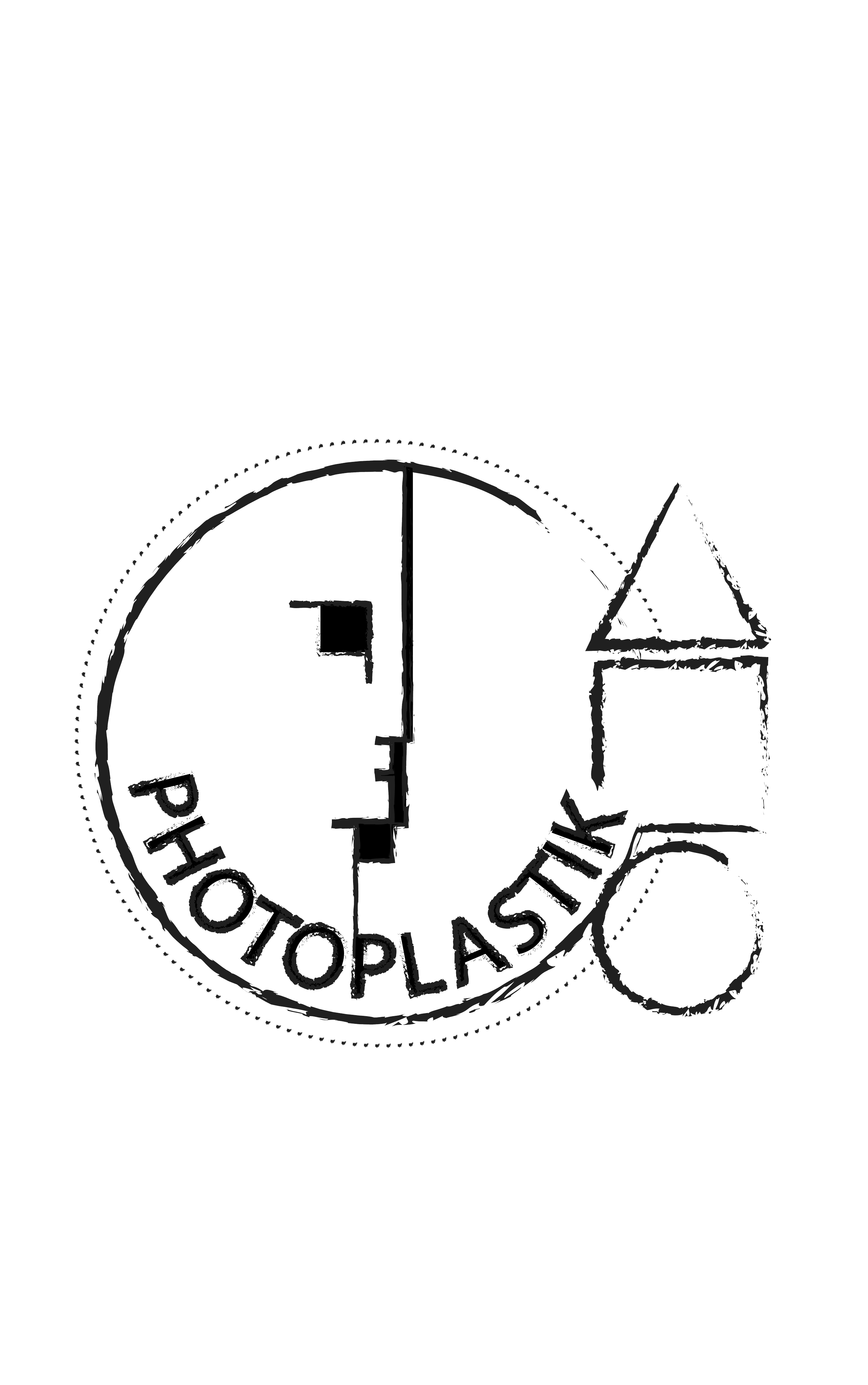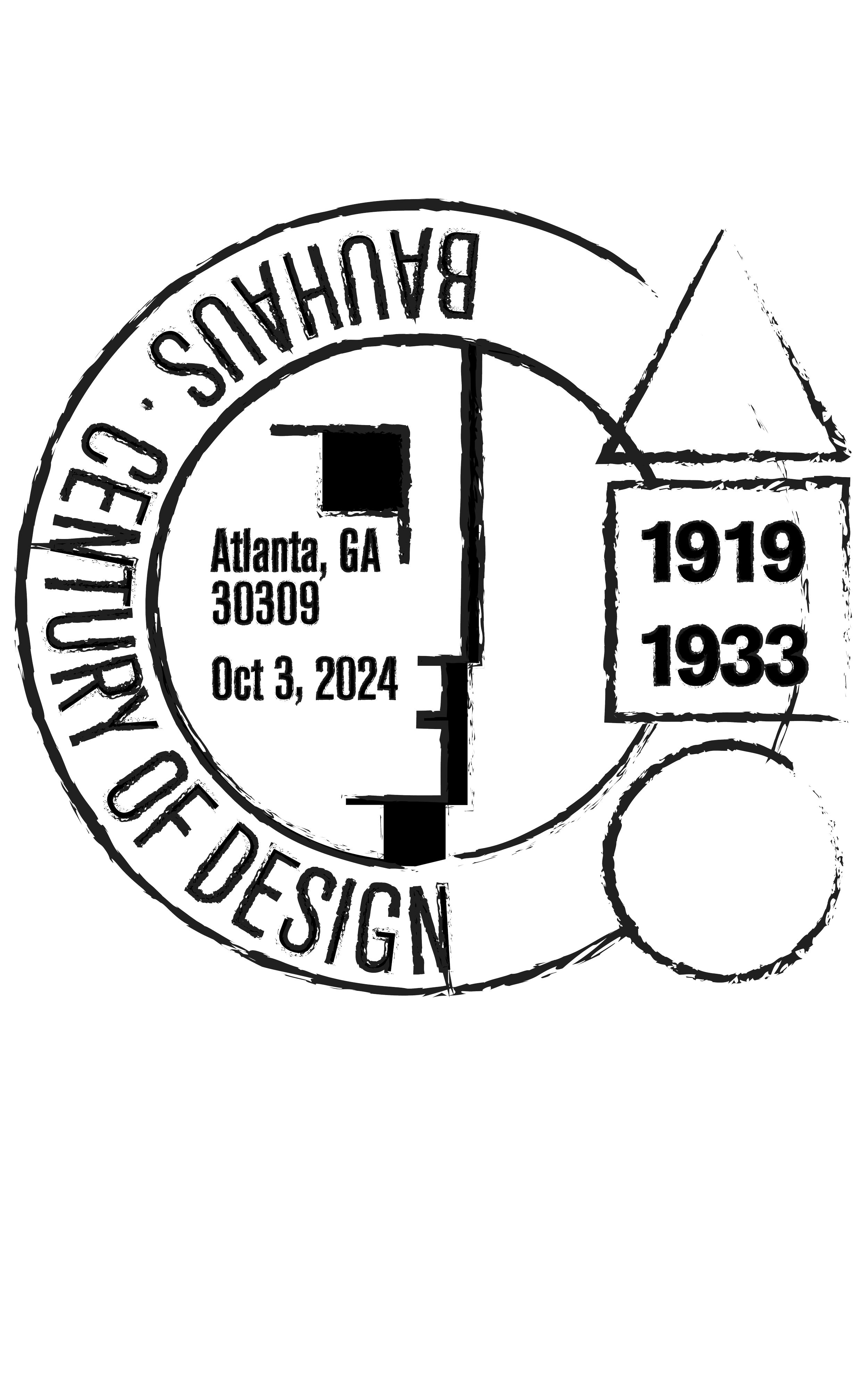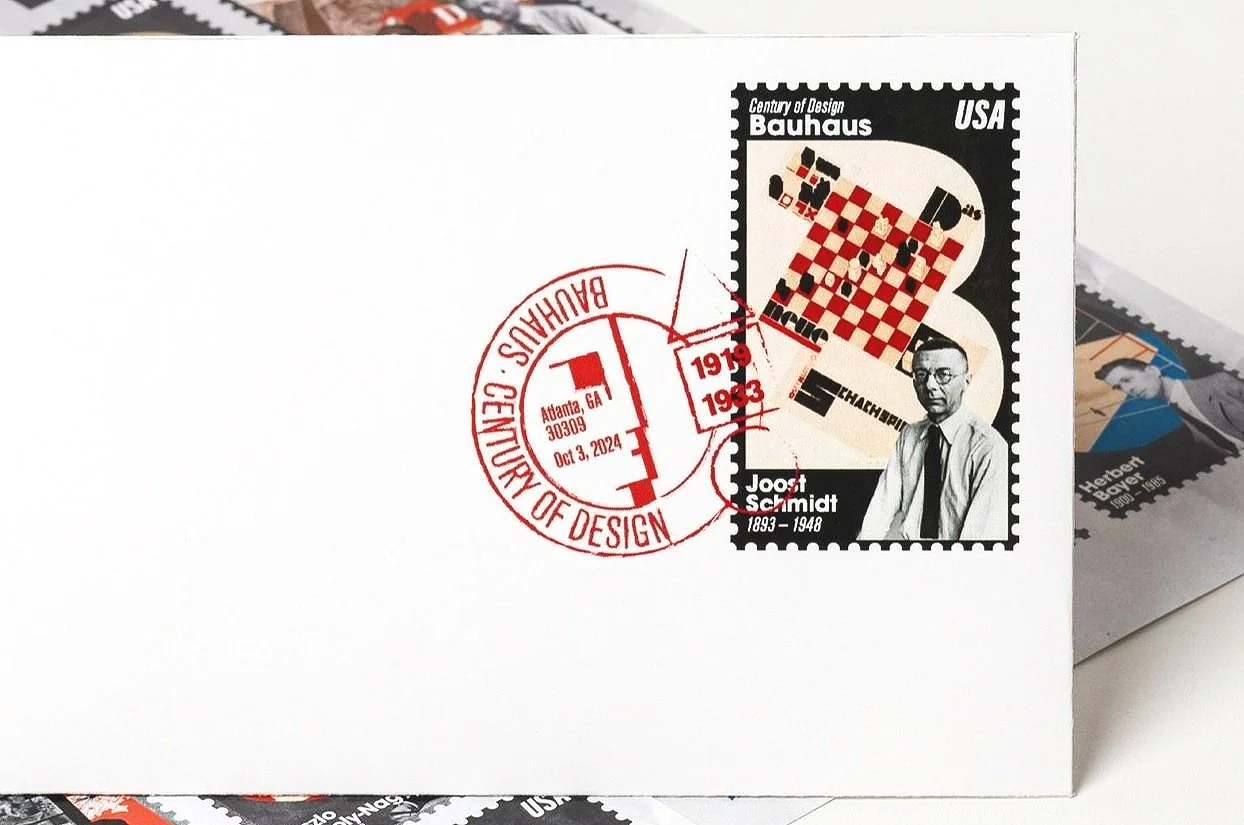Bauhaus USPS Stamps & Brochures
20th Century of Design: Bauhaus
USPS Stamps & Brochures
Bauhaus opened in 1919 in the city of Weimar, Germany, by an innovative and avant-gar-
de architect of the time, Walter Gropius, under the philosophy of combining art and
function, rooted in minimalism, experimentation, and modernity. The school proposed
many workshops and classes in which, regardless of experience, the focus was on work
and gender. Students and masters collaborated and socialized in disciplines such as
architecture, painting, sculpture, and much more. However, the school didn’t tap into
the graphic design scene until 1925, when the school in Weimar closed due to political
reasons and moved to Dessau, where Graphic Design formally became a huge part of
the school’s movement.
This project involved designing a set of USPS postal stamps featuring artworks by renowned Bauhaus artists—Joost Schmidt, Laszlo Moholy-Nagy, and Herbert Bayer. Accompanying the stamp collection, I created informational brochures dedicated to the biographies of these influential figures, providing insight into their artistic contributions. Additionally, the project included a custom cancellation seal, a specially designed envelope, and an informational card that offered a brief overview of the Bauhaus movement and the featured artists. This collection is a tribute to the legacy of Bauhaus and its enduring impact on modern design.







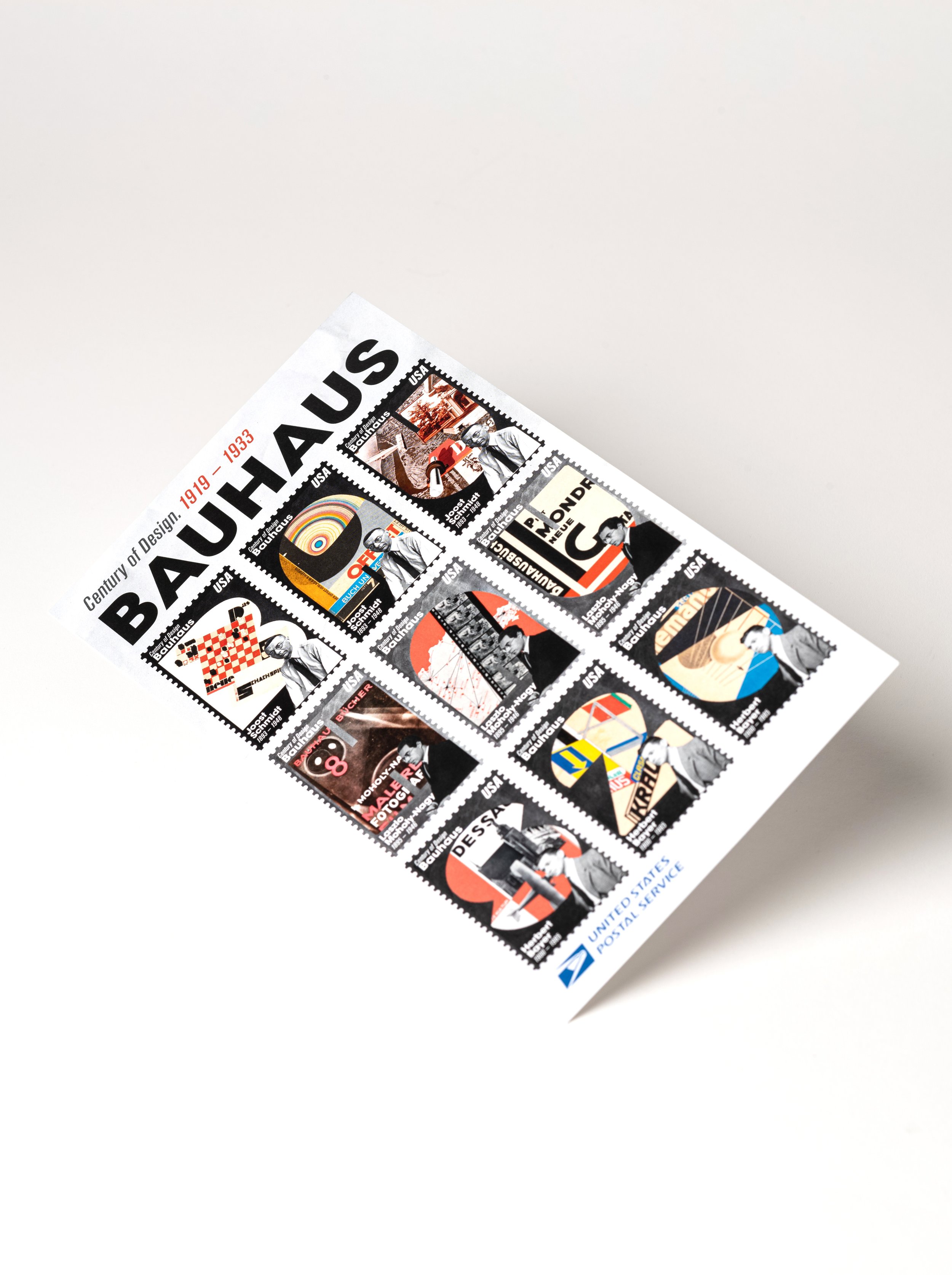

Process
Joost Schmidt
Schmidt joined the school in 1919 as a student and later became a teacher, especially known for his contributions to typography and graphic design. He played an influential role in shaping the Bauhaus’s visual language, especially in graphic design.
Laszlo Maholy-Nagy
Joined the Bauhaus in 1923, bringing his self-taught background in painting, photography, and constructivist ideas. He saw typography as a form of visual communication and when paired with photography, could get over traditional art forms.
Herbert Bayer
Bayer played a significant role in developing modern design and typography. Beginning his studies in Bauhaus in 1921, Bayer moved to teaching advertising and typography, advocating for integrating photography into typographic compositions.
Main Cancellation Seal
Inspired by iconic Bauhaus iconography, I utilized Joost Schmidt's design as a base and included the “ABC” of Bauhaus, thus the triangle, square, and circle combination. The seal features the “Century of Design” copy, as well as the location, date, and years when Bauhaus was active. It could also be used in different colors, like traditional black or less popular red and blue inks.



